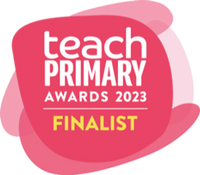In my capacity as Bedrock founder (and former English teacher and literacy coordinator) I was invited to speak at The Cornerstone English Hub’s Inspirational Power of Words conference.
I talked about the importance of intentional excellence in vocabulary teaching in improving literacy and transforming outcomes for learners. Here are my key insights.
My work as an English teacher and literacy coordinator and my research into the importance of vocabulary in transforming outcomes sparked a passion about improving literacy.
I truly believe that strong literacy skills have life-changing potential. Every day, my team and I find ways to ensure that learners make rapid progress on Bedrock. Our goal is to ensure that every single learner improves their literacy and empowers their voice – removing barriers to success, increasing social mobility and contributing to an articulate, confident society.
1. Relying on motivated reading alone isn't enough
Often, when we talk to parents at parents’ evenings across the country, they ask what they can do to improve their child’s English. The default response, of course, is to read more: children who read widely typically have a wider vocabulary.
In reality, however, though a noble goal, this isn’t universally effective. Over the last decade, around 40% of students haven’t achieved a C grade or the equivalent in GCSE English, and children from disadvantaged homes are unlikely to finish KS2 with the required standards of reading. In reality, it’s incredibly hard to get learners to read regularly and to scale their reading in a way that has a demonstrable impact on their vocabulary.
2. Vocabulary is key to accessing the entire curriculum
As a teacher and literacy coordinator, I became especially interested in the role of vocabulary in attainment. I saw that a deficit in receptive vocabulary was the cause of many learners’ struggles. It had a curriculum-wide impact on their ability to understand what they were being taught. Expressive vocabulary was an issue too – they often had great ideas but lacked the ability to express them in high-quality written or verbal responses.
I immersed myself in research about vocabulary and its role in literacy and learning. There’s an overwhelming body of research that shows a strong link between the size of a student’s vocabulary and their academic progress across the curriculum. The link persists all the way up to university-level study!
3. Literacy improvement shouldn't be seen as a quick win
As literacy coordinator, I experienced a culture of wanting to demonstrate progress rapidly. Products aimed at improving literacy promised quick wins – ‘if you do X, the results will be Y in six weeks’.
Perhaps quick wins make senior leaders feel secure in their actions. But to me, it was clear from the research that improving children’s vocabulary and literacy is a long-term commitment rather than a quick win. I think that realisation empowers you to be realistic so you can plan for the long term and build a curriculum you know will have a demonstrable and lasting impact.
4. Consistency is crucial for impact
If your school doesn’t have a vocabulary curriculum or is relying on motivated reading, it’s very unlikely you’ll narrow the vocabulary gap.
The key thing when building a vocabulary curriculum is to have a coherent and consistent plan. Teaching words occasionally, and piecemeal, in some classes and to some children who you think may have a poor vocabulary, is unlikely to make a demonstrable cross-curricular impact. Consistency maximises exposure to language right across the school. It’s important to devote time in the curriculum to teaching it, whether in class, as homework, or in literacy sessions.
5. Tech can play a valuable role in enabling a consistent, planned approach
Despite being aware of the importance of vocabulary in transforming outcomes, I knew that tackling it can seem an insurmountable task to teachers. EdTech, however, can have a role in making it logistically possible to teach vocabulary effectively and efficiently. Through assessment, it also gives you insight into which words children do and don’t understand, so you can act on that.
While it was a massive career decision for me, I felt compelled to leave the classroom to build Bedrock Learning. I knew that the issues I was facing were present across the country and I wanted to have an impact beyond my classroom. Bedrock Vocabulary – a robust and time-saving off-the-shelf tool for demonstrably improving academic vocabulary, like I had sought but not found – was the result.
Suitable for learners from Year 3 to Year 13, it follows a research-based approach, targeting the teaching of thousands of academic Tier 2 words and expanding learners’ cultural capital by exposing them to a range of fiction and non fiction texts. Recapping, teaching and reassessing ensures learners develop a long-term, deep, and nuanced mastery of their new vocabulary. From their online knowledge organiser, teachers, learners and parents can see how learners’ vocabulary is evolving, moving from ‘words I’m learning’ to ‘words I’ve learned’.
Six years on from the launch of Bedrock Vocabulary, we’re constantly developing new learning schemes. Bedrock Grammar is split into Foundational and Advanced schemes that cover everything from word classes and capital letters to prepositions and apostrophes.
Teachers have told us that, building on the bedrock (pardon the pun!) of Tier 2 words that Bedrock Vocabulary provides, they’re missing an adaptable approach to intentionally teaching subject-specific Tier 3 words. Our solution is Bedrock Mapper. It allows teachers across the curriculum to easily upload their own word lists and create their own quizzes and multimodal activities. You can make your own content and tap into community-created content. Learners then learn using the multimodal activities familiar to them from Bedrock Vocabulary. What’s more, your teaching will be turbo charged by Bedrock’s reteaching and memory checking algorithms! It’s a tool that enables teachers to dramatically scale up the amount and complexity of words they teach, transforming disciplinary literacy in their school.
6. Intentional excellence is at the core of vocabulary acquisition
In many schools, time pressures on the curriculum mean that vocabulary is often acquired incidentally through text books, making it hard for an entire class to learn new words in a way that will narrow the word gap significantly. A vocabulary curriculum – and use of technology such as Bedrock – shifts the focus to an intentional mode of teaching vocabulary, in which there is explicit instruction of specific words.
Adopting such a pedagogy creates a beautiful loop where teachers from our community often tell us that learners become more aware of Tier 2 vocabulary across the curriculum and the whole-school culture becomes far more word-aware, with learners becoming more confident, curious and mindful.
In many schools, time pressures on the curriculum mean that vocabulary is often acquired incidentally through text books, making it hard for an entire class to learn new words in a way that will narrow the word gap significantly. A vocabulary curriculum – and use of technology such as Bedrock – shifts the focus to an intentional mode of teaching vocabulary, in which there is explicit instruction of specific words.
Adopting such a pedagogy creates a beautiful loop where teachers from our community often tell us that learners become more aware of Tier 2 vocabulary across the curriculum and the whole-school culture becomes far more word-aware, with learners becoming more confident, curious and mindful.





